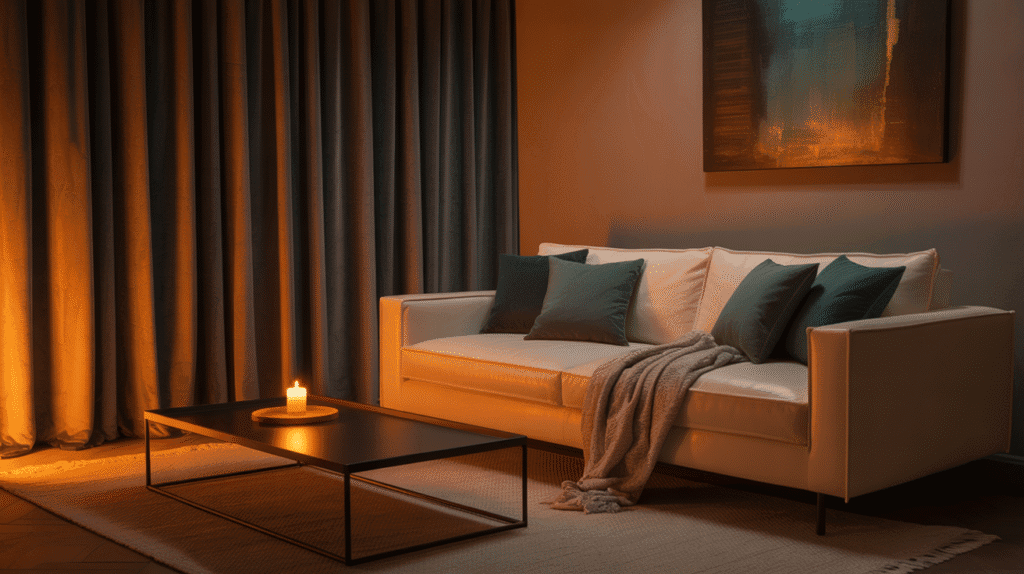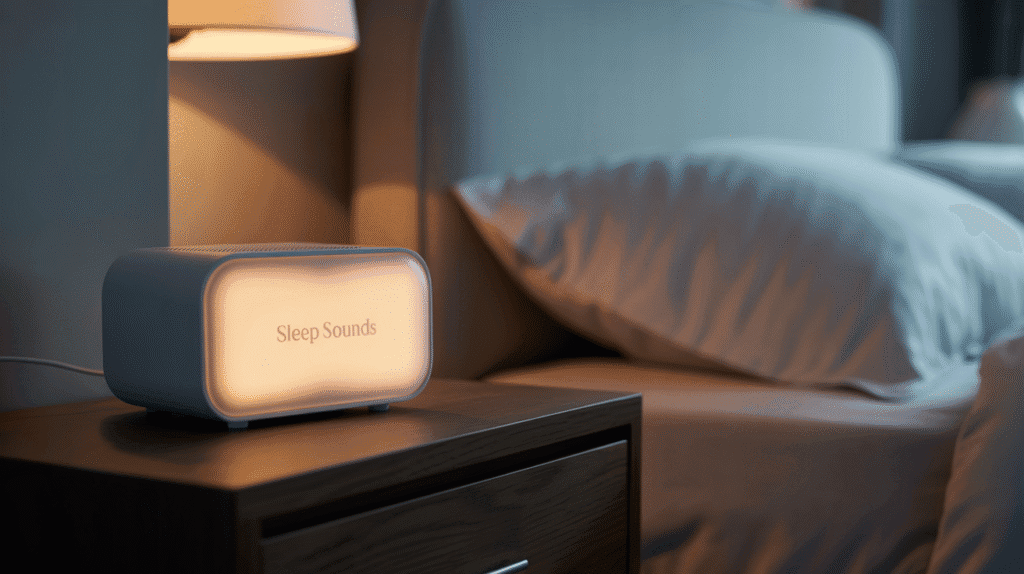
Getting a good night’s sleep is essential for physical health, mental clarity, and emotional resilience. However, living in a noisy environment—whether it’s urban traffic, loud neighbors, or even household sounds—can severely disrupt your ability to rest well. Poor sleep quality leads to fatigue, irritability, and long-term health issues.
In this article, we’ll explore how simple nighttime habits can help you overcome noisy surroundings and enjoy deeper, more restorative sleep. With the right strategies, you can turn even a chaotic setting into a peaceful sleep haven.
Ready to sleep better despite the noise? Let’s dive in!
One of the most effective ways to combat external noise is by setting a strong internal signal that it’s time to wind down. Building a calming pre-sleep routine trains your body and mind to transition into rest mode, making it easier to fall and stay asleep even when distractions persist.
Activities such as reading a physical book (not a screen!), taking a warm shower, or practicing deep breathing exercises can be powerful triggers. Choose two or three relaxing activities and perform them in the same sequence every night.
Consistency is key. Over time, your brain begins to associate these rituals with sleep, helping you tune out external noises naturally. Even with disturbances around you, your inner rhythm can dominate, making the transition to sleep smoother.
Establishing this routine doesn’t have to be complicated. Even small gestures, like dimming the lights or using a lavender-scented spray, can create strong psychological cues to relax.

While you may not control the outside noise, you can definitely control how much of it reaches you during sleep. Soundproofing doesn’t require a full renovation; small changes can make a big impact.
Start by using high-quality earplugs that are comfortable for overnight wear. Alternatively, white noise machines or apps can create a consistent sound backdrop that masks disruptive noises effectively. Even a simple fan can serve this purpose if you’re on a budget.
Rearranging furniture can also help. For instance, placing bookshelves or heavy curtains against walls can dampen external sounds. Investing in thick rugs or carpets can absorb ambient noise from floors.
Finally, consider sealing gaps around windows and doors with inexpensive weather-stripping materials. These small investments pay off by creating a quieter, cozier space for uninterrupted sleep.
When external conditions are less than ideal, mastering internal relaxation techniques becomes even more critical. Practices such as diaphragmatic breathing, progressive muscle relaxation, and mindfulness meditation can significantly improve your ability to fall asleep despite noisy surroundings.
Start with deep breathing exercises: inhale for four counts, hold for four, exhale for four, and hold again for four (the “box breathing” method). It’s simple but highly effective in calming the nervous system.
Body scan meditations, where you mentally check in with each part of your body and consciously relax it, can also shift focus away from environmental noise and toward internal peace.
Practicing mindfulness helps you accept ambient noise without getting emotionally reactive to it. Over time, your tolerance for slight disturbances increases, and your overall sleep quality improves.
These techniques not only help you fall asleep faster but also teach your mind to remain calm even when external conditions aren’t perfect.

Beyond noise management, optimizing the overall sleep environment can have a huge impact on how restorative your nights are. Focus on three main factors: light, temperature, and comfort.
Use blackout curtains to block outside light pollution, and consider a sleep mask if curtains aren’t enough. Adjust the room temperature to a cool, comfortable range—ideally between 60°F and 67°F (15°C to 19°C), which promotes better sleep cycles.
Your mattress and pillows matter too. Choose ones that provide the right support for your sleeping style. High-quality bedding made from breathable materials like cotton can also regulate body temperature and improve comfort.
Finally, try to maintain a consistent sleep schedule—even on weekends. Routine helps synchronize your body’s internal clock, making it easier to fall asleep quickly, regardless of external distractions.
By fine-tuning your environment, you create multiple layers of support that reinforce better sleep habits every night.
Sleeping well in a noisy environment might seem like an impossible dream, but with the right habits, it’s entirely achievable. Building a calming pre-sleep routine, soundproofing your space, leveraging relaxation techniques, and optimizing your sleep settings all work together to create a protective buffer against noise.
Even small changes can lead to dramatic improvements in sleep quality. Start by introducing one new habit tonight, and gradually stack others as they become second nature.
Remember, your sleep is sacred. With a few thoughtful adjustments, you can reclaim peaceful nights no matter how loud the world outside may be. 🌙✨